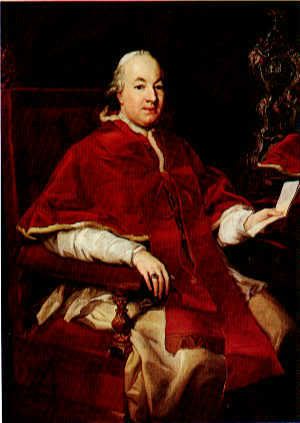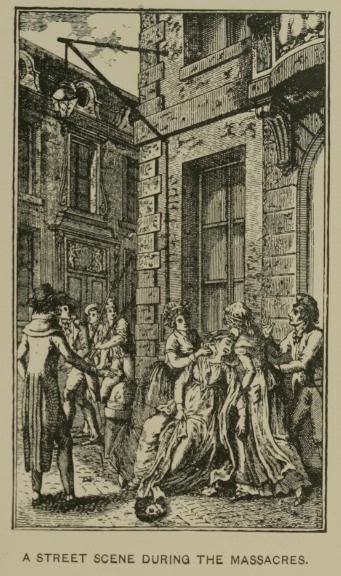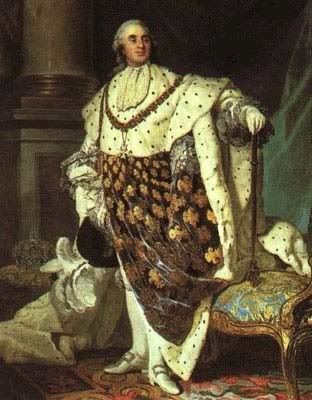French Revolution: Interim and the Winds of Change
The Roman Empire in the late 1780s to outward observers appeared to be as strong as it ever was. It was a major player in European politics, and was the only Great Power capable of going toe-to-toe with Great Britain and it’s great colonial empire.
This outward appearance of strength however hid the underlying social problems that permeated the Empire. Despite successful reforms by the unofficial ‘First Minister’ of the Empire, Adrianos Curcuas, rebellious elements in the less wealthy regions of the Empire continued to fight against Roman authority, though not with the same level of intensity as they had prior to Curcuas’ reforms.
The Empire was nevertheless the wealthiest power of its time. The Roman solidus was the most valued currency in Europe by far, greatly outclassing the British pound even. A solidus was a solid 24-carat gold coin that had been reinstated by Emperor Konstantinos XII in 1587 in commemoration of the Empire’s newfound prosperity.
Prior to the readaption of the gold solidus, the Empire had used the hyperpyron, a thinner type of gold coin that was first issued under the Komnenid Emperor Alexius I (1081 – 1118) due to the gradual debasing of the solidus of that era. With the massive gains that the Empire had won during the 15th and 16th centuries however, Konstantinos XII felt it was time for the Empire to reconnect to it’s past golden age by making the new solidus the standard monetary unit of the Roman Empire.
The almost solid gold coin had a great advantage over the paper currency that was becoming increasingly common in many parts of Europe. Because the solidus was in and of itself a highly valuable specie, it was impossible to “overprint” the currency as was all to common with paper money, which often would lead to out of control inflation.
This meant that banks, merchants and traders of all kinds valued the Roman solidus above all other forms of currency, because they were receiving the pure gold, rather than depending on the credibility of the issuing government to actually have the specie in store.
The fledgling United States had found out all too well the dangers of using paper money. Finding itself increasingly in debt, it tried to simply print more money. But these worthless strips of paper weren’t worth the tree it took to make them. American traders were always ecstatic when they were able to get their hands on Roman solidus.
The valuable coin kept inflation within the Empire to a minimum, and made its banks among the most trusted and reputable in all of Europe. So long as the many gold mines of the Empire remained active and intact, the economic future of Constantinople seemed assured. Though the Empire’s great wealth only mattered to those citizens who actually felt it, of course…
Despite it’s social problems however, the Empire gave its more accepted citizens a substantial amount of freedom compared to much of the rest of Europe. Serfdom had long since disappeared from the Empire entirely, and even the Arabs and Slavs of the Empire were now guaranteed some basic rights as a Roman Citizen under the law.
One man who was a great admirer of Roman history and of the Palaiologid Dynasty in particular was Edward Gibbon, a historian of British descent. Despite being a member of the British parliament, Gibbon bore the Empire no ill will, and applauded its thus far aggressive foreign policy in defending it’s global interests.
On April 3rd of 1788, Edward Gibbon personally arrived in Constantinople with a complete copy of his Magnum Opus, which had yet to be distributed by the press. Called A History of the Roman Empire, Gibbon personally presented volumes IV, V and VI to the Imperial court, which had yet to reach the press.
So impressed was Emperor Nikoalos III by his exhaustively detailed documentation of Rome’s vast history that he offered Gibbon a position as Imperial Archivist, which he happily accepted. Despite his rather harsh criticism of Empresses Irene and Theodora, his review of the Palaiologid Dynasty was one of endless praise, with only a few rare exceptions.
Rescuing the Empire from its decrepit and broken state under foreign oppression, the Palaiologids had once again made Constantinople the greatest city in the world. With a population approaching 1 million, its size was comparable to ancient Rome. Having been safe from attack for nearly 350 years, The City had been allowed to rebuild and grow to heights never before seen in the Eastern Empire.
As the Imperial Archivist, Gibbon was given access to many literary works and historical records thought lost by the west, having been salvaged from Alexandria during it’s original fall in the 7th century, and hidden from the Crusaders during the 13th. To this very day, the exact contents of the great Imperial Library are unknown to the general public, being a closely guarded secret of the Imperial Family.
In recent times certain members of the Imperial Family have stepped forward and spoke of a secret “True History” that the world today is mostly ignorant of, and attempts by the Roman government over the centuries to cover up this hidden truth. This is mostly viewed as simply being a conspiracy theory by the community at large however.
The conspiracy began in 1957 with the discovery of hidden memoirs allegedly written by Gibbon himself whilst he was serving as Imperial Archivist. The memoirs claim that he (Gibbon) was forced to swear a blood oath to never reveal the secrets of the Archives, on penalty of death. The historical community is generally skeptical as to whether or not Edward Gibbon was actually the one who wrote these memoirs, but those who believe are often fanatically dedicated to uncovering the “hidden truth”.
The majority of the professional historical community believes that the ‘hidden’ contents of the Imperial Library mostly contain the Empire’s, and to a lesser extent, the Imperial Family’s ‘dirty laundry.’ This could range from adulterous affairs to government-sponsored assassination attempts.
The Roman Empire has always been known for its secrecy in certain areas, and it is not unusual for it to attempt to cover up the more ‘distasteful’ parts of its history, which is littered with political intrigue.
Regardless, Edward Gibbon served loyally and efficiently as the Imperial Archivist until his death in 1813. Besides his love of Roman history, one motivating factor for this loyalty might have been his personal friendship with the Emperor, which began developing in 1790 when the Emperor had his private doctor treat Gibbon’s hydrocele testis.
Using more advanced techniques and procedures than were available to Western European medical practitioners of that time, the operation was successful and Gibbon’s life was very likely saved from what could have very easily been a fatal condition.
Besides A History of the Roman Empire, Gibbon is well known for his excellent documentation of the Napoleonic Wars, which were written as the war itself happened before his eyes, offering a rare first hand account of what the people of that age were truly feeling as the social orders they had come to depend on were crumbling around them.
To this very day Gibbon’s documentation of the Napoleonic Wars is considered to be one of the best primary sources available to modern historians, and explains in great depth the impact that the social and political changes had on the lives of the people of Europe, both the mighty and the small.
Just prior to the French Revolution, the Office of Barbarians had brought troubling news to the Imperial Court of the growing unrest within the Kingdom of France, the Empire’s new ‘ally’. While Constantinople had had its fair share of revolts and unrest since the end of the American Revolution, their troubles were nothing in comparison with the crippling dissention that was shaking the very foundations of Louis XVI’s kingdom.
Fearful of the ideals of the American Revolution spreading to Europe, the Emperor in early 1789 offered to cover a substantial portion of France’s national debt until its economy was able to recover. This gesture of friendship unfortunately came too late, however.
The first obvious sign of trouble was in February 1787 when Louis XVI’s finance minister Loménie de Brienne convened an Assembly of Notables comprised of nobles, clergy, bourgeoisie and bureaucrats. The goal of this assembly was to approve a new land tax that would for the first time in France allow for the taxation of land and property owned by the nobility and the clergy.
The assembly did not approve the new tax, and demanded that the King instead call the Estates-General. King Louis XVI agreed to convene the Estates-General in May of 1789. As the date for the meeting of the Estates-General approached however, the parliament of Paris proclaimed that the Estates-General would have to meet according to the forms observed at its last meeting.
Many in France considered this decision to be an outrage however. The 1614 Estates had consisted of equal numbers of representatives of each estate, and voting had been by order, with the First Estate, the Second Estate, and the Third Estate having one vote each. But for many, in particular those living in Paris, this was not good enough.
Notably, the “Committee of Thirty”, a body of liberal Parisians, began demanding that the voting in the Estates be done by head count, rather than by order. They also desired the Third Estate, which comprised the middle class and peasants, to have its numbers doubled. Finance Minister Jacques Necker agreed that the size of the Third Estate should be doubled, but decided that the decision to vote by headcount should be left in the hands of the Estates themselves.
Admits the growing resentment between the elitists and liberals, the Estates-General convened in Versailles on May 5th, 1789. Attempts by the Third Estate to push for voting by head were unsuccessful, as a bare majority of the clergy and a large majority of the nobility supported the continuation of voting by order.
Despite having twice as many delegates as the other two Estates, they were politically worthless in terms of power, as each Estate was to still receive one vote each. Having enough of what saw as an unfair imbalance, the Third Estate began meeting on their own, calling themselves the “Commons”, they proceeded with the “verification of powers” independently of the other two Estates. Meeting from June 13th to June 17th, certain members of the nobility and a majority of the clergy chose to join and openly support them.
In an ultimately futile attempt to prevent the Assembly from convening, Louis XVI ordered for the doors of the Salle des États to be closed, claiming that carpenters needed to prepare the hall for his upcoming Royal Session. Being forced onto a real tennis court due to bad weather, they proceeded to swear the Tennis Court Oath on June 20th.
Under this oath they swore to not be dissolved until they had given France a constitution. Before long a majority of the clergy had joined them, as had forty-seven noblemen. Despite the army amassing in and around Paris and Versailles, messages of support for the Assembly poured in from all over France. On the 9th of July, the Assembly restructured itself as the National Constituent Assembly.
The first blood of the revolution was spilled as a consequence of Louis XVI’s dismissal of Jacques Necker, who had gained the enmity of the Royal Court for his support of the Third Estates. When he tried to suggest that the Royal Family live by a budget to conserve funds, the King fired Necker while completely restructuring the finance ministry at the same time.
Believing the King’s firing of Necker to be the beginnings of a royal coup against the National Assembly, many Parisians began an open rebellion against the government. Before long Paris was in complete anarchy, with widespread looting. With the help of the French Guard, which had sided with the insurgents following the abandonment of the city by the royal officers, the rebels set fire to a large weapons cache inside the Bastille.
After the fall of the fortress to the mob, the governor, Marquis Bernard de Launay was brutally beaten, stabbed and then decapitated. His head was placed on a pike and paraded around the city by the rebels afterwards. Mayor Jacques de Flesselles was also soon assassinated as he was being taken to the Palais Royal.
After the brutal violence that swept Paris, the King was forced to back down for the time being. The Marquis de la Lafayette soon took command of the newly formed National Guard of Paris. Necker also returned to power as Finance Minister, but managed to alienate himself from the French people with his demanding of general amnesty, which he received.
From all over France nobility fled to the surrounding countries in Europe. A great number in Southern France fled into Roman Italy where they attempted to stir up the Italian Nobility with horror stories of the riots in Paris and the “unnatural tyranny” of the National Assembly, which had taken control of their Kingdom.
They hoped that the Italian Nobles would petition the Emperor to intervene in France to crush the fledgling popular government, but Emperor Nikolaos III had no intention to militarily intervene in France’s internal politics. Though he hoped that Louis XVI would be able to retain control over his Kingdom, and did not wish to see the ideals of the American Revolution take hold in Europe, he was also not willing to once again involve his Empire in another fruitless and costly war.
In August, Feudalism was officially abolished in France, eliminating the special privileges long enjoyed by the nobility and the clergy. On the 26th of August, the Assembly published the Declaration of the Rights of Man and of the Citizen. Never before had such a declaration been made. Despite the wishes of some, in particular the Emperor in Constantinople, the winds of change were blowing, and they would not be quick to subside…
------------------------------------------------------------------------------------------------------------
Well, the Revolution has started. Only time will tell how the Empire shall react to the growing unrest within France.
Last edited:




